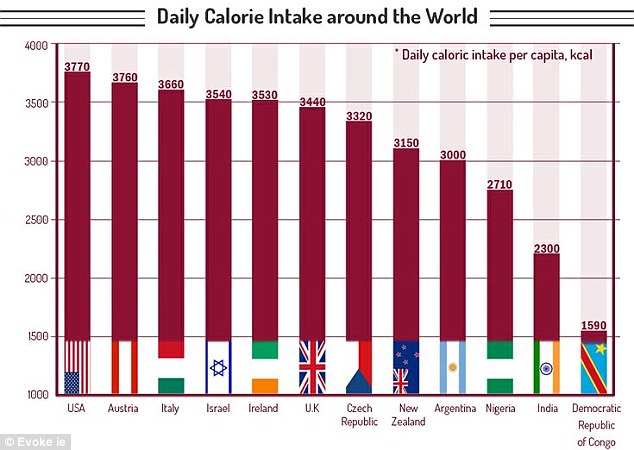
The long-term effects of aerobic exercise and the reduction in body fat are two of the many benefits. If you're looking at the benefits of aerobic exercise for weight loss, here are two things to consider: How long do the results last? How much fat will you lose? How much fat can you lose? Find out more! Remember to eat right! This is the basis of a healthy lifestyle. You should avoid eating a lot of carbohydrates.
Aerobic exercise weight loss is long-term
In the Cochrane Review, participants were randomized to four different levels of aerobic exercise for 12 weeks. Participants in moderate-intensity, (HRR = 40-50%) and high intensity (HRR > 70-80%) groups were given an equivalent aerobic exercise program. For twelve weeks, participants did a 60-minute treadmill workout three days a semaine. The participants experienced modest weight loss as well as several health benefits, such as reduced blood pressure and high cholesterol, reduced risk of heart attacks, and improved cognitive abilities.

Aerobic exercise is more effective than weight-lifting or cardio at burning calories and improving fitness. One study looked at the long term effects of aerobic exercise in weight loss for people who didn't follow a diet. Participants were divided into 3 groups. Participants who exercised aerobically lost on average 4.3% body weight. Participants who burned 400 to 600 calories per session lost an average 3.3%, while those in control gained only 0.5%.
Aerobic exercise can increase calories burned but it is important to gradually increase intensity. Begin slowly, and gradually increase your intensity. Begin slowly and build up your intensity gradually if you are just starting aerobic exercises. You should stop exercising if you feel pain in your joints. By increasing your intensity of aerobic exercises, you can help lose weight as well as improve your metabolic rate.
Aerobic exercise and weight loss have a significant impact on body fat
Multiple studies have demonstrated that aerobic exercise is effective in reducing body fat and weight loss. However, the results of this study are not yet conclusive. This study involved 48 obese and overweight adults. Four equal groups were created. One received intense aerobic exercise at a high level of intensity, while the other two received training at a moderate intensity. Both groups experienced weight loss. However, the statistically significant difference between the two group was not significant. The participants in the study exercised for 60 minutes per day, three days a week for 12 weeks. Both baseline and 12-weeks later, the participants' blood biochemical and anthrometric parameters were measured.

The effects of aerobic exercise at three intensity levels on body weight and body fat was studied in this study. Higher intensity exercise training was associated with greater body composition changes. High-intensity exercising significantly decreased body fat and increased bodyweight in comparison to low-intensity groups. Regular exercise can improve your body composition and prevent you from developing chronic diseases related to obesity. Although the study was limited to one group, the results showed that aerobic exercise was beneficial for many.
FAQ
How long does it usually take to lose weight
Weight loss takes time. It takes about six months to lose 10% of your weight.
You should not expect to lose weight overnight. Your body will need time to adapt to new dietary changes.
This means you need to gradually alter your diet over several weeks or days.
Fad diets should be stopped as they are often not effective. Instead, you should focus on changing your daily routine.
If you eat unhealthy snacks at night, you might want to cut back.
Eat healthier meals earlier in evening. This will prevent you from snacking late at night.
It is important to drink lots of water throughout the day. Water helps keep your body hydrated, and prevents you from becoming dehydrated. Dehydration can cause you to feel tired and sluggish.
Drinking lots of water throughout the day can help you stay energized, focused, and alert.
Relaxing activities can help reduce stress. You can spend time with family members, for example.
You could also read books or watch movies, or listen to music.
These activities will help to relax and unwind from stressful situations. These activities will help you improve your mood and self-esteem.
If you want to lose weight, consider your health first.
Your physical fitness is an indicator of overall health. Proper nutrition and regular exercise are essential to staying fit.
Why Exercise Is Important to Weight Loss?
The human body is an incredible machine. It was made to move. Our bodies are designed to move, whether we're running, swimming or biking, lifting weights, doing sports, jumping rope, walking or standing still.
Exercise also burns calories and improves muscle tone. This helps you feel happier both mentally and physically. People may have heard that exercising is important for weight reduction. But how can this be true?
-
Exercise increases metabolism. Active people use energy. Every time you move, your heart beats faster, blood flows to your muscles, and your lungs absorb oxygen. All these activities use energy. You can burn calories more easily by exercising and increasing your metabolic rate. The amount of energy that your body burns during exercise is called the "burning calories".
-
Exercise reduces appetite. Exercise can help you lose weight.
-
Strengthening your muscles through exercise is key. Muscle tissue needs more energy to function than fat tissue. To maintain your current weight, you'll need less calories if muscle mass is increased.
-
Exercise releases endorphins. Endorphins make you smile. When you exercise, endorphins are released into your bloodstream. Endorphins have been shown to prevent pain signals from reaching your brain. This can give you a sense of well-being.
-
Exercise boosts self-esteem Exercise regularly leads to higher self-esteem. People who exercise regularly live longer and healthier lives.
Make small changes to lose weight. Consider adding these tips to your daily routine.
Can I eat fruits when I am intermittently fasting?
Fruits are great for you. They contain vitamins, minerals, fiber and antioxidants. However, they contain sugar, which can cause blood glucose to rise. This can lead to insulin resistance, weight gain, and even diabetes. If you are looking to lose weight through an IF diet you need to choose low glycemic-index fruits such as oranges, pears, berries and melons.
Is intermittent fasting affecting my sleep quality?
Intermittent fasting can affect your sleep. Your hunger hormones rise when you skip meals. You may wake up more often at night because of this.
Experts advise skipping breakfast. Instead, experts suggest eating a light snack just before bed.
If you are still hungry after your snack, you can eat a small dinner right before you go to bed.
Overeating is not a good idea. If you do, you will gain weight rather than losing it.
Are there any side effects of intermittent fasting?
Intermittent fasting is safe and has no side effects. You might have minor problems if your plan is not well thought out.
If you skip breakfast, for example, you may feel constantly irritable. It is possible to experience headaches and muscle cramps.
These symptoms are usually gone within a few days.
Why lose weight when you are 40 years old?
People over 40 should take care of their health and keep fit. It is crucial to find ways that you can stay fit throughout your entire life. This includes regular exercise, eating right, not smoking, moderate alcohol, and regular exercise.
It is also important for us to realize that our bodies will change with age. Our bones weaken and our muscles shrink. It is possible to slow down the process of aging by taking good care of ourselves.
As we age, there are many advantages to being healthy and fit. These benefits include:
-
Better sleep
-
Better mood
-
Increased energy levels
-
Lower chance of developing cancer
-
A longer life
-
More independence
-
Better sex
-
Better memory
-
Greater concentration
-
Increased circulation
-
Stronger immune system
-
Fewer aches & pains
What level of exercise is required to lose weight?
There are many factors that influence the amount of exercise required to lose weight. These include your gender, age, body type and how heavy you are. Most people need to exercise at least 30 minutes five days a weeks.
The American College of Sports Medicine recommends 150 minutes of moderate-intensity aerobic activity each week, spread over three days.
If you are trying to lose 10 pounds, 300 minutes of moderate intensity exercise per week is a good goal. This includes activities such brisk walking and swimming laps, bicycling, dancing, playing tennis or golfing, hiking, running, jogging and other similar activities.
Consider doing 20 minutes of vigorous exercise thrice a week if you are just starting out. It could be sprinting, lifting weights, jumping rope or fast walking.
Aerobic exercise is a great way to burn calories and build muscle mass. Muscle burns more calories than fat does. Building muscle and losing weight can help you reach your goals faster.
Statistics
- It's estimated that half of all American adults attempt to lose weight every year (1Trusted (healthline.com)
- One study in 9 active men found that HIIT burned 25–30% more calories per minute than other types of exercises, including weight training, cycling, and running on a treadmill (18Trusted Source (healthline.com)
- According to Harvard Health, it's estimated that a 155-pound (70-kg) person burns roughly 112 calories per 30 minutes of weight training (5). (healthline.com)
- Another study found that 24 weeks of weight training led to a 9% increase in metabolic rate among men, which equated to burning approximately 140 more calories per day. (healthline.com)
External Links
How To
How to quickly lose belly weight?
You need to realize that losing belly fat can be difficult. It takes dedication, hard work, and dedication. You will see results if these tips are followed.
-
Healthy Food Healthy food is important. Healthy food includes fruits, vegetables, whole grains and lean proteins.
-
Drink Water. Drinking water will keep you hydrated and make it easier to feel satisfied for longer durations. Make sure you drink lots of water every day.
-
Cardio exercises are a great way to burn calories and build muscle mass. Cardio exercises help to burn more calories, build muscle mass, and improve your cardiovascular health. Cardio exercises can also increase your heart health, and speed up metabolism. Try to do 30 minutes of cardio exercise daily.
-
Get Enough Sleep. A vital part of maintaining good health is sleep. A lack of sleep can lead anxiety and stress that can then be exacerbated by unhealthy habits like smoking and drinking.
-
Reduce Stress Levels. Stress can have a negative impact on our brain chemistry, and hormone levels. When we are stressed, our bodies produce cortisol, a hormone that increases hunger pangs and cravings for high-calorie foods.
-
Take regular breaks. Regular breaks are important throughout the day. Take a break and go outside to walk or take a nap. Doing so will give your mind and body the time they need to unwind and recover.
-
Avoid Alcohol Consumption. Alcohol is a waste of calories that slows down the body's ability to digest food. You should avoid alcohol if your goal is to lose belly fat.
-
Have fun